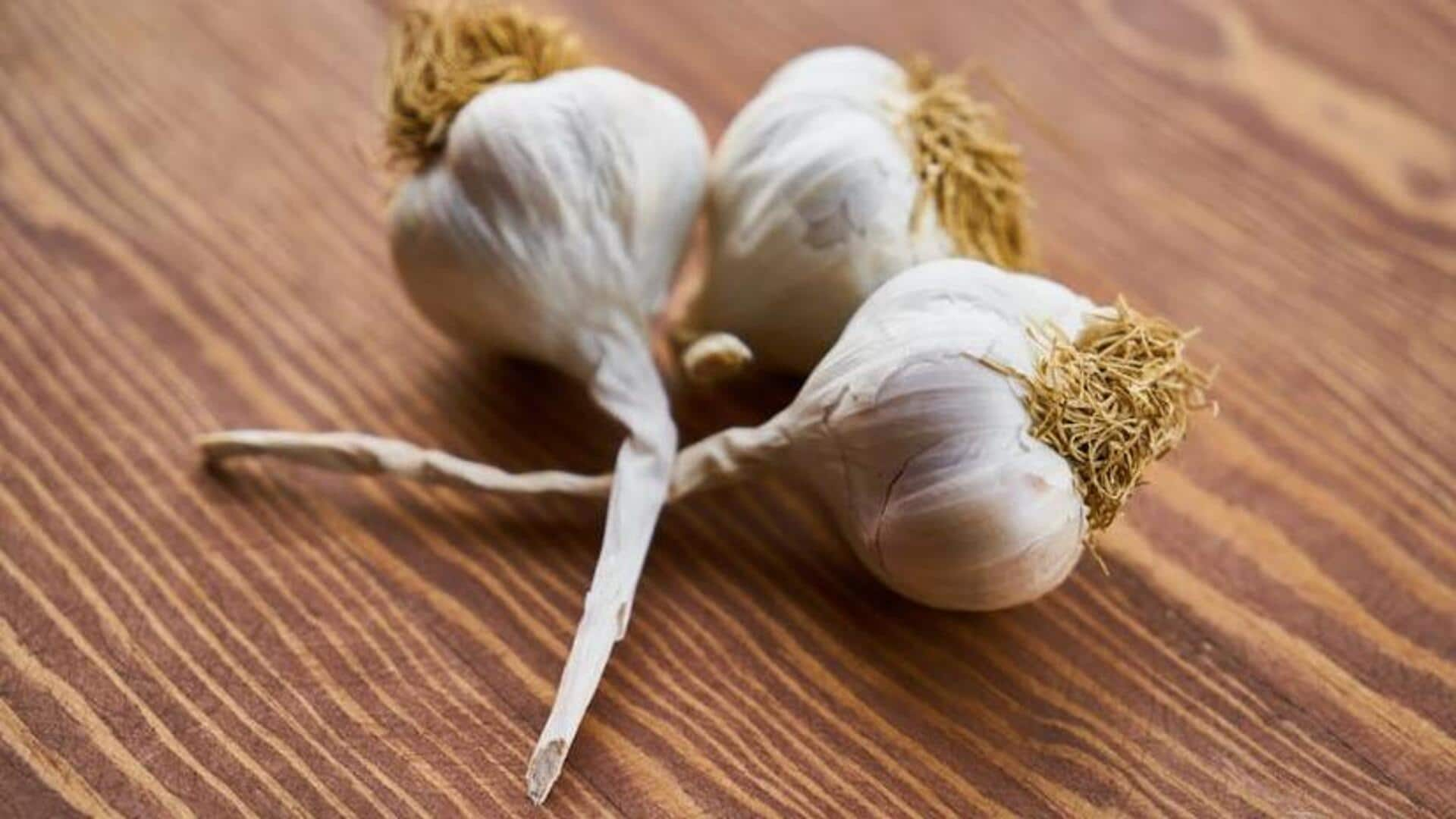
Debunking the most common health myths about garlic
What's the story
Garlic has been a kitchen staple across the globe, revered for its flavor and possible health benefits.
However, with a number of myths associated with garlic's health properties, things can get a bit confusing.
In this article, we will bust some of the common myths about garlic's effect on health.
Once busted, you can know how garlic fits into your balanced diet/lifestyle.
Myth 1
Garlic cures all illnesses
One of the most common myths is that garlic can cure everything.
While garlic does possess antimicrobial properties and may help boost immune function, it's not a cure-all solution.
Scientific studies indicate that while garlic can help contribute to overall wellness, it shouldn't be substituted for medical treatments or medications prescribed by healthcare professionals.
Myth 2
Raw garlic is always better
Another common belief is that raw garlic is always more beneficial than cooked garlic.
While raw garlic retains more allicin—a compound linked to many of its health benefits—cooking doesn't entirely diminish its nutritional value.
Cooking may reduce some compounds but also makes other nutrients more bioavailable, offering different advantages.
Myth 3
Garlic supplements are equally effective
Many people think that garlic supplements offer the same benefits as fresh garlic.
However, supplements can vary widely in efficacy depending on their formulation and how they're processed.
Fresh garlic has a complex cocktail of compounds that work together. Hence, whole foods tend to offer broader benefits than isolated extracts in supplements.
Myth 4
Eating more garlic means more benefits
A common misconception is that consuming large amounts of garlic will significantly enhance its health benefits.
However, moderation is essential with any dietary item.
Overindulging in garlic can lead to digestive issues and other adverse effects, without offering any extra health benefits beyond what is gained through moderate consumption.
Myth 5
Garlic prevents heart disease completely
Some even claim that eating garlic prevents heart disease altogether owing to its potential cholesterol-lowering effects.
While research shows that regular consumption may contribute positively towards cardiovascular health by reducing certain risk factors like high blood pressure or cholesterol levels slightly over time, it cannot prevent heart disease completely on its own.
Other lifestyle factors such as diet balance or exercise habits, along with medical advice where necessary, should also be considered.